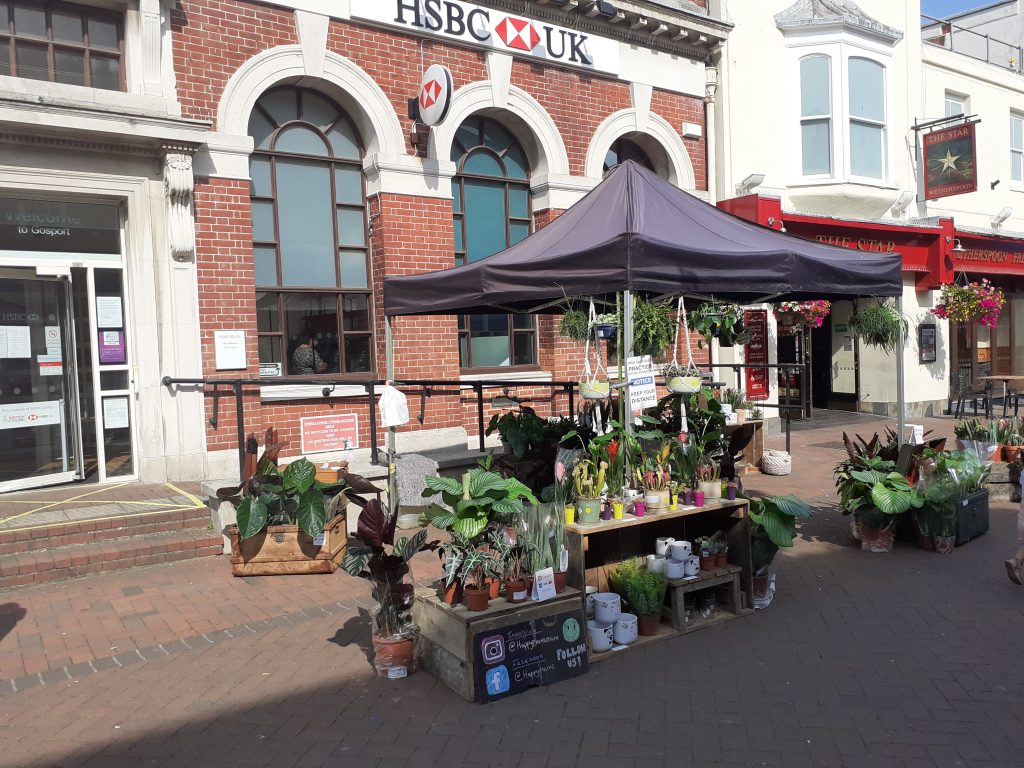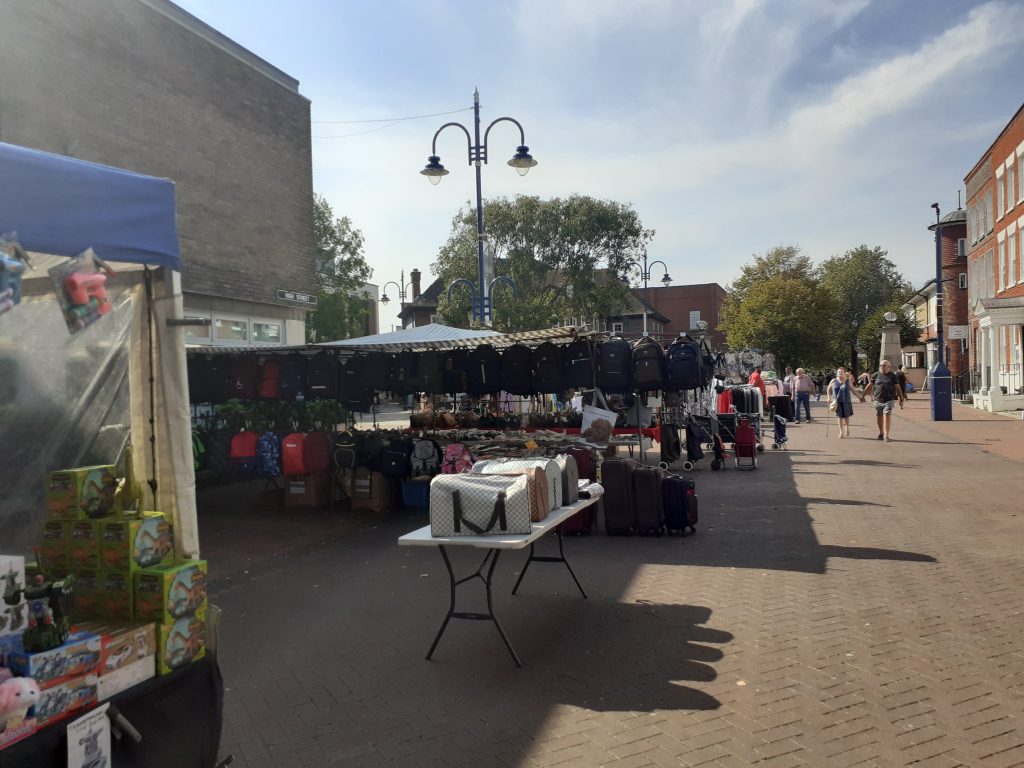Associated British Foods (ABF) have appointed Activate on The Quadrangle, a mixed-use development boasting four floors of office space and two floors of retail and restaurants in Cheltenham.
Following practical completion, Activate will create and deliver a comprehensive occupier engagement programme to the 70,000 sq ft scheme. The programme will promote collaboration, wellbeing, and enrichment among the business space’s occupiers, with the ultimate goal of improving employee satisfaction and productivity.
Having launched in July 2019, this latest instruction means Activate has now been appointed to advise on over 5m sq ft of mixed workspace and retail destinations across the UK over the last 12 months. Other new instructions on projects across the UK include; Aztec West Business Park in Bristol, the Lower Precinct Shopping Centre in Coventry, and Liverpool Shopping Park.
Andrew Sparrow, Director of Placemaking at Activate, commented:
The first phase of the community and occupier engagement programme will consist of building relationships with local stakeholders, including the Council, BID, Cheltenham Festival Organisers and the Friends of Imperial Gardens. The remit will also be to identify interim pop up opportunities in any vacant ground-floor commercial units.
In the longer term, once occupiers have begun to move into the office units, Activate will also organise networking and social events, introduce Fitwel and other health and wellbeing activities, meet ESG targets through incorporating things like sustainable travel initiatives, and strengthen internal communications with and between occupiers.
Kevin Seville, Head of Property – Pensions at ABF, commented;
The sensitive redevelopment of the Quadrangle is creating a fantastic mixed-use destination in the heart of Cheltenham, providing attractive workspace, retail & leisure and amenities for occupiers and visitors. An essential part of making the building the primary destination to work and relax in the town, is to have a creative community engagement strategy that brings the building to life and creates a thriving community amongst its occupiers. The experience and creativity of the Activate team will help us deliver that.
A quick blink into the sunlight after more than three months of lockdown shows that predictions abound for a rush back to shops and restaurants.
As consumers shake off lockdown fatigue and prepare for a summer of social activity, pent-up demand for a return to normality is set to spark a retail footfall rise of 48% when non-essential retail reopens in England from April 12, according to Springboard. The forecast increase means footfall will be 128% higher than the same week in 2020, although it will still remain 62% below 2019 levels.
In shopping centres and retail parks, which have maintained a steady flow of footfall during lockdowns due to their higher proportion of essential retail offerings, footfall is predicted to rise by 46% and 26% respectively in the first week of reopening, says Springboard.
At the end of the first two lockdowns, footfall rose by more than 40%, yet greater increases are expected this time due to the success of the vaccination programme and the concurrent opening of retail and hospitality.
As shopping centre and retail park managers looked to keep their brands alive, they turned to destination marketing as an essential tool. And in the absence of live events, they have pivoted towards digital marketing and social media. Even in the case of significantly reduced marketing budgets, centre managers have been able to grab a bigger bang for their buck by leveraging the expertise of Activate’s Destination Marketing team.
How destination marketing will boost retail rebound for 2021
Many centre managers and retail real estate owners have reapportioned budgets to focus on digital engagement through social media. Their properties have benefited accordingly by remaining front of mind, and front of wallet, for consumers. Our Destination Marketing team works to research and present a menu of covid-secure promotional options, from which individual centres and retailers can select.
Campaigns around Christmas, Valentine’s Day, Mother’s Day and Easter have kept customers interested, with online gift guides and creative video content designed to drive visitors to shopping centres and retail parks. A mix of content has been developed for a range of platforms, including animation and video for Instagram Reels, in partnership with individual retailers and sponsors, for promotions which are activated on site. These have included competitions to win an M&S Easter hamper, handouts of single red roses, chocolates, branded face coverings or hand sanitiser giveaways.
In one cost-effective campaign, designed to appeal to a regional audience for Vangarde Shopping Park, York, the marketing team achieved more than 17,000 engagements and 1700 comments from one single, simple post. ‘What do you call this?’ with the hashtags #Yorkshire and #Vangarde showed images of simple items such as a bread roll and a bath robe, and invited comments on their different regional names. This kind of engaging content, which has encouraged communities to use destination social media platforms, has kept the brand and its retailers alive and top of mind during challenging times, when many stores have had to remain closed. The key is to get online communities talking and create the intent of physically visiting the properties at the heart of any creative material or activation at some point in the future. Onsite teams across a range of properties have also been encouraged to create their own ‘welcome back’ video content, showing they are ready for customers to return.
Campaigns to suit properties large and small
Our Destination Marketing team is equipped to deliver projects to suit the needs and budgets of a variety of schemes, and work is designed to fit the demographic of shoppers and retailers within each property. While some schemes have benefitted from multi-channel marketing, incorporating radio and print campaigns, others have maximised a retailer-sponsorship approach. For example, when delivering messages around the covid-secure aspects of each site, the team has built in short, sharp, sponsorship tags for affiliate retail brands to ensure that they are driving the impact for those retailers that are open and ready for custom.
Many properties that feature restaurants with al fresco dining areas have been revamping these to be covid-secure. Here, we’ve worked directly with the restaurants to promote their rejuvenated outdoor space and used the content to include instructions about making reservations in the new seating areas, in order to drive bookings.
Looking ahead, the team is optimistic about real-life events at shopping centres and retail parks returning later in the year. In the meantime, it is also delivering marketing activations that provide social value, such as the #nochildgoeswithout campaign being run at The Core in support of a Leeds charity that aims to give every child in need an Easter egg.
As the big reopening on April 12th approaches, and customers become keen to visit bricks-and-mortar destinations as a leisure activity once more, it’s time to make sure all that footfall is heading in the right direction: towards your property.
By Michelle Atack, Digital Marketing and Events Associate, Activate
To find out more about the Activate Destination Marketing Service visit > https://bit.ly/3DhY11s
If you have a retail scheme, office campus or business park where the marketing needs to work harder, contact either Michelle Atack or Andrew Sparrow.
Repurposing of real estate is taking on many different forms. From regenerating whole town centres to suit local communities, to reimagining vacant spaces for more commercially viable uses; huge swathes of real estate are being made fit-for-purpose for the future economy.
Truly researching and understanding what occupiers, customers and communities want from these assets is crucial to all forms of repurposing. Whether big or small, not having a predetermined view of what will work best in the future is essential. Localism is one of the driving forces behind this, as customers increasingly seek out retailers and operators on their doorstep. Not just as a short-term response to the pandemic, but as part of a longer term trend.
Having worked together on a project at Liverpool Shopping Park, we recently asked Peter Gilliland, Head of Property Management at Derwent Estates and Esther Worboys , Placemaking Manager at Activate and an Expert member of The High Streets Task Force, to talk about the value of understanding the local community when looking to repurpose assets or reimagine vacant spaces. Chaired by Jennifer Small on our Marketing team, they share a number of the practical considerations to make the best of a challenging space.
Understanding of local demographics, community research and creative design all combined to develop ideas for an unloved area of public realm. The vision is to transform this part of a thriving retail destination into a valuable community amenity. Although the project is still in progress, a lot of work has been done by the Activate team to research what the local community need, supported by our CAD team to visualise the possibilities. As we prepare for retail reopening in April 2021, we look forward to these ideas becoming a reality and the community offer being enhanced.
Watch: A discussion on repurposing for the community
As many town centres and high streets continue to struggle with sharp declines in footfall accelerated by Covid-19 and the associated increase in internet shopping, they must adapt to changing retail patterns and the digital economy. A new approach is vital in order to repurpose, regenerate and enliven those spaces that were once at the heart of local communities, and can be again.
While the way consumers shop has evolved, it is possible for town centres and high streets to be revived as places where people meet, eat, drink and socialise together. Providing well-designed and safe spaces for communities to thrive in this way means a more economically vibrant way forward. An injection of funding, whether from central government or private investors, is often the kickstart a Local Authority requires to get much-needed projects off the ground. However, gaining the insight to ensure any funding is astutely invested is the key to optimal outcomes. Examples of central government funding for high street or town rejuvenation projects, which are also expected to attract additional private investment government funding, include:
- Future High Streets Fund (FHSF): a £1bn pot launched in December 2018. So far, 14 pilot towns have been granted up to £25m each, with the remaining still developing business cases.
- Towns Fund: 101 towns selected in September 2019 to receive up to £25mn from the £3.6bn, not restricted to the town centre or high street. Some could be those shortlisted for the FHSF, which could benefit from £50mn total. Town Deals, so far agreed in seven locations including Blackpool and Torquay, will play an important role in giving private investors the confidence to back projects.
- Heritage High Street Fund: a £95m four-year programme encompassing High Streets Heritage Action Zones, will target high streets’ conservation areas, ensuring management of their special architectural and historic interest.
In addition to funding, the government has also launched the High Streets Task Force (HSTF) – an alliance of placemaking experts that provides encouragement, tools and skills to help communities and local government transform their high streets. The HSTF is run by the Institute of Place Management (IPM) and has appointed recognised experts to support local authorities and advise on a range of issues. These include planning, urban design, placemaking, landscape architecture, resilience, transport, valuation, asset management, investment, governance, data and analytics, place management and leadership. Having been appointed in the role of HSTF Expert, I look forward to working with a variety of local authorities around the country in support of their efforts to rejuvenate their high streets.
As Professor Cathy Parker, co-chair, IPM commented: “With support and investment from the government and professionals across the country, we have a fantastic opportunity to develop places that are really valued by the local communities they serve.”
So how can Local Authorities make certain that they are using their funding to their best advantage, and investing in the facilities and services that matter most to their communities? Workman’s Activate team has been collaborating closely with a number of councils to ensure they achieve just that. Here are three examples:
The enlivenment of Gosport
The rich military history of Gosport led to it becoming a Heritage Action Zone in 2018, and additionally, in June 2020, it became one of 68 English locations to secure investment for a High Streets Heritage Action Zone scheme in the Gosport High Street and Stoke Road conservation areas. As a result, the area will receive government funding of £1.78m for the implementation of a four-year multi-project programme agreed with Historic England.
Gosport Borough Council, in partnership with Hampshire Cultural Trust, who operate Gosport Museum and Art Gallery, has begun to examine options for enlivenment of the high street, while attracting footfall reciprocally between the high street, market and museum.Working closely with Gosport Borough Council, the Activate team has undertaken trader consultations and customer research in order to form proposals for how the market can be developed and improved. Future developments will include cultural events within the museum that will spill out onto the street and integrate with the market as well as a programme of specialist monthly markets to complement the regular offer.
Master planning for regeneration in the North East
Embarking upon master planning for space within its town centre, this Local Authority in the North East of England was looking for a high-level feasibility assessment for a space that comprises former council offices. The Activate team was approached by a development partner of the Council and asked to research current local retail and leisure provision in order to analyse the viability of potential options for the site. There had been an original proposal to introduce big-box retail, which was shelved due to demand being so greatly reduced over the past few years. After researching the local area, the Activate team recommended a mixed-use scheme, including some chain store retail but supplemented with independent retail. This would be delivered alongside a food hall community hub and public realm improvements, all designed to meet the Council’s regeneration objectives.
Repurposing Merseyside spaces: from vacant to viable
The repurposing of vacant space, while also relocating the town centre market, is the key goal of this ongoing Merseyside project. Having carried out trader consultations, competitor benchmarking and customer research, the Activate team found that an increase in food and beverage offerings would be key to the sustained popularity of this town’s market.
The team put together a plan for the Council which involved repurposing a vacant retail centre to create a purpose-built market. Workman’s Building Consultants designed a layout that offered improved linkages and sightlines, as well as sections that could be shut off, leaving the food and beverage stalls to continue trading into the evenings, while Activate conducted a detailed viability study, including financial forecasts.
Looking ahead, we will establish a steering group with existing tenants to ensure a smooth relocation, and also advise on branding options. Potential new tenants for the market will be proactively sought, while Workman’s Property Management team will propose management options. Workman is therefore providing a true end-to-end service to ensure that this local authority meets its targets and optimises the funding it has received.
A holistic approach
Indeed, the Workman Activate team is well-equipped with the skills, experience and insight to deliver a holistic approach, from master planning to building consultancy to property management to placemaking. Indeed, at Workman, our teams have years of experience providing services for over 30 local authorities and other public sector bodies nationwide. So, our expertise ensures that local authorities looking to squeeze the maximum benefit from both government and private sector funding achieve their goals.
For many local authorities, the starting point is as simple as listening to local people and finding out what’s important to them – a keystone that’s easily overlooked. At Activate, our listening skills are proven, and we take pride in delivering projects that keep the hearts of local communities beating.
Our skills are already being put to valuable use in places like Gosport and Merseyside, so why not harness our expertise and let your town’s heart beat once more?
Placemaking Manager, Activate and High Streets Task Force (HSTF) Expert
As Lockdown Two begins, responding to occupier needs and engaging consistently is more important than ever, which is why increased frequency of communication during this period is business-critical.
Having become accustomed to a greater work-life balance, it’s clear that employees are likely to be seeking more flexibility. But that’s not all. To meet future occupier expectations, offices will require attributes that both tempt comfortable home-workers and provide welcome relief for those keen to return.
From doggy day-care facilities to round benches for communal outdoor seating to Covid-safe events that bring communities together, what office users want is likely to have evolved in accordance with new behaviours adopted since hard lockdowns began more than 220 days ago. According to behavioural psychologist Dr Phillipa Lally, it can take between 18 and 254 days, and an average of 66 days, for new habits to be formed. So, investors and managers who take the time to listen to occupiers and deliver facilities to support these emergent long-term behaviours, will be in a strong position to both attract and retain users when they can finally return.
No one-size-fits-all approach
Our research among occupiers shows 70% are keen to attend social and networking events again, once they are back in the office. Indeed, listening to occupiers has also shown us a whole range of specific preferences: 52% of respondents (to a survey for a client with a portfolio of London offices) said they would be highly likely to use on-site cycle facilities if they were provided, while 63% of respondents from one of our multi-let London office buildings said they would be likely to attend Pilates / yoga classes. However, this is no one-size-fits-all approach – it’s vital that occupiers’ voices are heard, as not everyone is keen to bend during their breaks.

One fantastic example of involving the wider community in charitable and sustainability initiatives is Birmingham Business Park (BBP). In response to occupier feedback, the on-site team created six allotment beds for occupiers including Canon, EQ Technologic, Arval and Create Fertility. The allotments engender a sense of community, network and purpose among occupiers, who have bonded over the nurture of plants. There is also a hub offering ongoing online and offline learning for all allotment holders and occupiers at BBP. It’s proving a popular initiative, so four more allotment beds are planned for 2021, and vegetable trugs have been added.
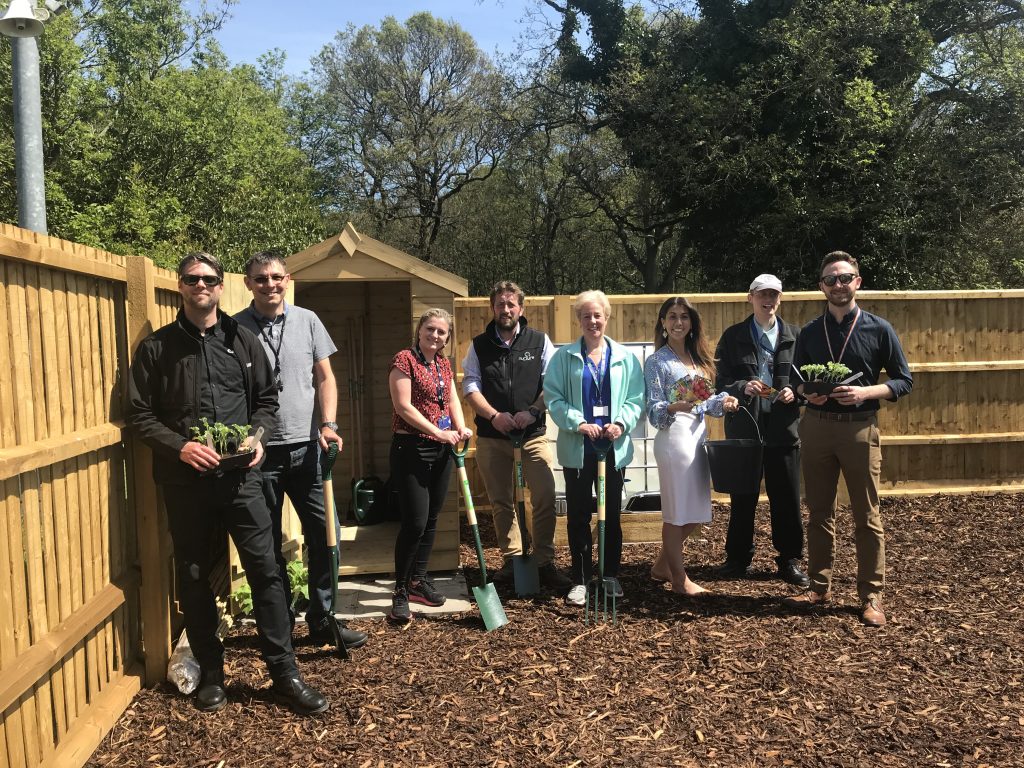
Two allotments were allocated to Age UK Solihull – the BBP charity partnership for three years, as voted by occupiers. Food banks are organised for the charity, money from sales of BBP honey is donated, along with Christmas presents. Indeed, BBP has been awarded an International Corporate Social Responsibility Award for support to local charities, including a grass roots sports club at Marston Green Junior School, where kit has been supplied for two seasons.
Foster continual engagement
By asking questions and considering the responses of the people who live, work and play in the buildings we manage, we foster continual engagement with end users, which allows us to deliver exceptional customer experience. This has a proven impact on occupier satisfaction and productivity, while also supporting our clients’ key asset management objectives of occupier retention and attraction.
As multiple lockdowns continue to be enforced, and with question marks hanging over the mass-return of occupiers, behavioural changes such as working from home may outlive the pandemic, leading companies to formally offer more flexible working. But offices remain vital places of innovation, collaboration, learning and networking. And while the quality of the office interior has traditionally been perceived as a key selling point, our research shows that occupiers will now also be looking for the chance to see colleagues face-to-face and be part of a community. Delivering that enticing reason for coming to the office has never been more important, but it demands dedicated and considered management.
“A vibrant and valued place to work”
Indeed, as James Coke, Fund Manager & Co-Head of Institutional UK Real Estate at Columbia Threadneedle Investments, writes: “While there are short-term headwinds, we believe over the medium- to long-term the office will remain a vibrant and valued place to work, and consequently, in the hands of an active manager, a viable and reliable investment proposition.”
For many properties, there has historically been little or no focus on community management and no wider programme of services, amenities and events. But it will be these elements that increasingly play a key role in the future customer experience that occupiers are looking to benefit from. Already, prior to Covid-19, we had identified growth in this area and the associated commercial benefits being provided. This requirement will only continue to increase, with bespoke solutions to futureproof properties now being drawn up.
Occupier engagement: only as good as its actions
At Activate, we are proficient in the delivery of focus groups and online surveys to understand occupier requirements and future aspirations. Where needed, we carry out assessments of void space and identify common areas for potential enlivenment activities. We review existing spend on occupier marketing, and for properties where this is not currently undertaken, we are well-versed in the creation of communication programmes for occupier communities.
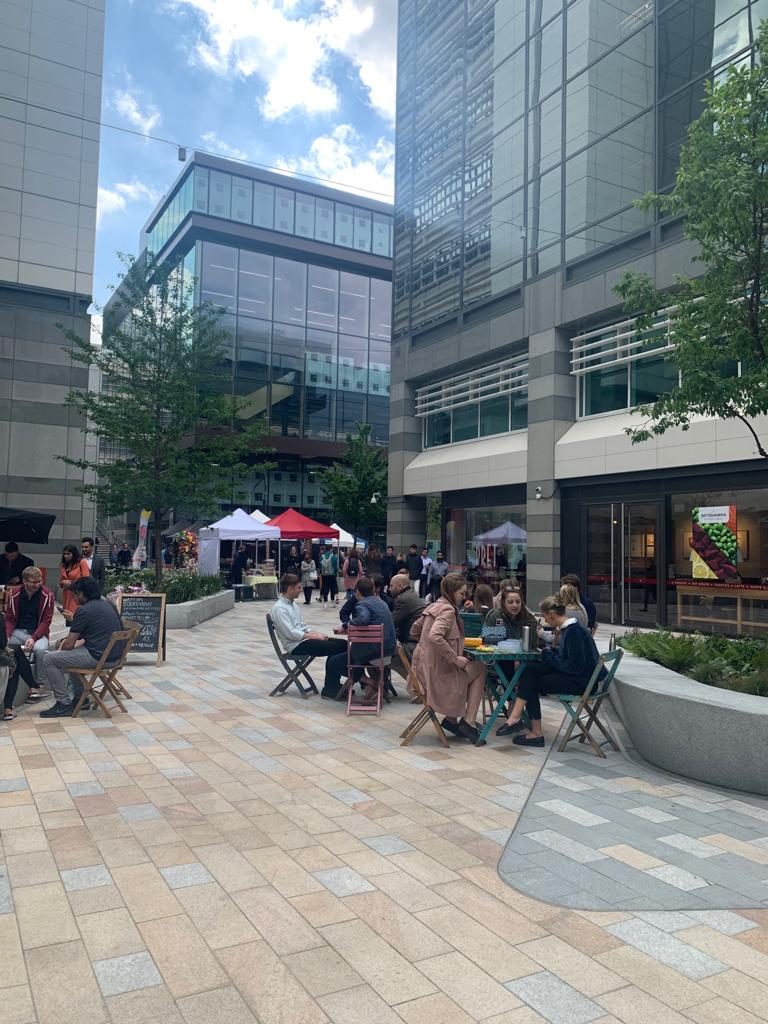
Of course, occupier engagement is only as good as its actions, and at Activate, we advise following up on changes discussed with occupiers as quickly as possible. This is not only the right thing to do, but also good business: occupiers and users of space will value the effort, and trust built throughout the pandemic will nourish relationships into the future.
The results of occupier engagement will help answer questions and support landlords in the creation of refreshed environments, which will not only appeal to existing occupiers, but also support marketing of the property to new occupiers. Crucially, change and progression will be shaped by occupiers, creating a customer experience they have developed together; and one which will make the office a pleasure to inhabit.
The Activate approach: strategies to improve customer experience
Here at Activate, we regularly engage with occupiers, which has allowed us to embed strategies aimed at improving and enhancing the customer experience. These are a few of the key themes we have seen from this approach:
- Room for community: Make space for a multi-use lobby area, this helps both in terms of fostering collaboration between multiple departments and creating a sense of community, which makes people happier and more productive. This also plays into the increasing desire to work in lounge settings rather than a desk environment.
- Be at one with nature: Allocate space for living walls, rooftop gardens, planting trees and developing community gardens. Our growing urban population is more disconnected from nature than ever before, yet studies have shown that being around nature improves short term memory, restores mental energy, relieves stress, and boosts creativity, as well as purifying the air.
- Change it up: Humans often flourish in a changing environment, so keeping things fresh through continual change can make the space more appealing. Buildings can provide entertainment with spaces that can evolve through imagery, lighting and media.
- Fit for all: Exercise is one of the most important aspects of maintaining good health and a high degree of productivity. Adding a fitness centre or the availability of yoga classes to your office building is a great way to ensure long term occupancy.
- On your bike: Environmental and economic issues have prompted many to bike to work, so it’s become increasingly important to provide secure and convenient bike storage. Adding a bike repair station to the storage area, or a visiting bike repair facility, would be an extra bonus.
By Andrew Sparrow, Director of Placemaking, Activate
To find out more about the Activate Destination Marketing Service visit > https://bit.ly/3DhY11s
If you have a retail scheme, office campus or business park where the marketing needs to work harder, contact either Michelle Atack or Andrew Sparrow.
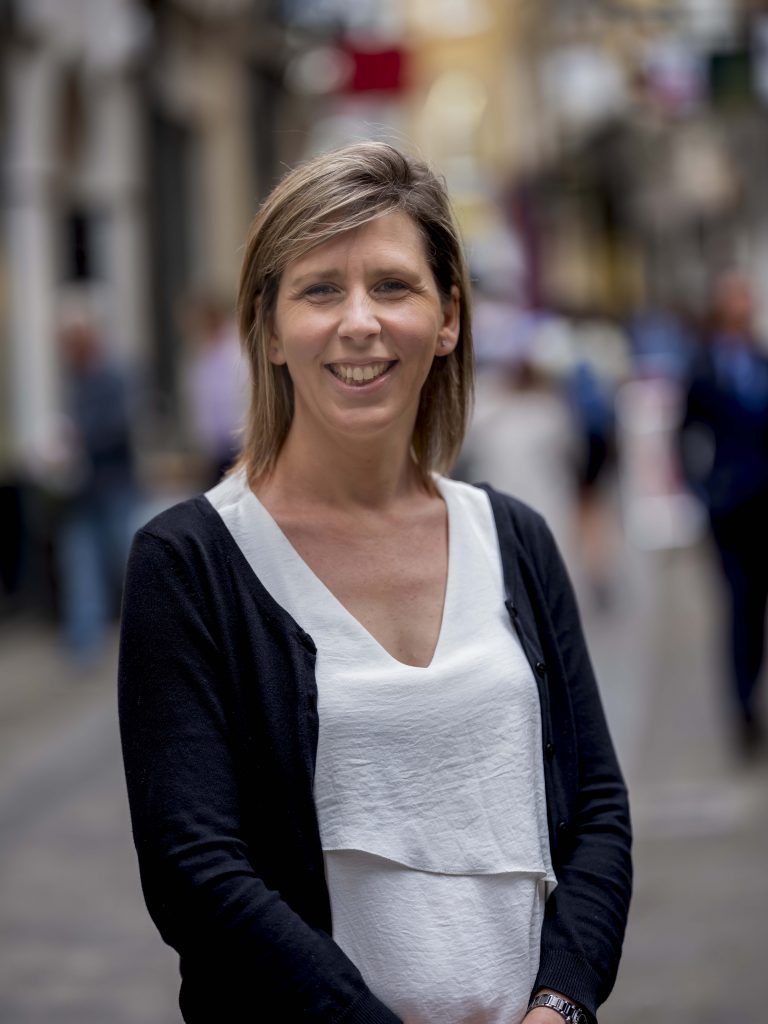
Esther Worboys, Placemaking Manager here at Activate, has been appointed as an Expert by the High Streets Task Force (HSTF), to help communities and local government transform their high streets.
The HSTF, set up to strengthen local leadership in high streets and town centres, was established by the government in 2019 as part of its plan for the High Street and in response to recommendations from a panel led by entrepreneur Sir John Timpson. Run by the Institute of Place Management (IPM) on behalf of government, the Task Force brings together a range of expert organisations on reinventing and restructuring places.
HSTF Experts will visit specific high streets and town centres to work with place leaders and the community to identify the important key issue(s) that are hampering successful transformation, and how to address these. They will also consult with local authorities and stakeholders to help solve complex challenges, which may also include running vision workshops and brokering relationships within the local community. Experts will advise on a range of issues, including planning, urban design, placemaking, landscape architecture, resilience, transport, valuation, asset management, investment, governance, data and analytics, place management and leadership.
Having previously held roles as Town Centre Manager for the London Boroughs of both Twickenham and latterly Hounslow, Esther’s appointment will draw on her previous experience of town centre regeneration projects and will complement her current role managing various placemaking projects for Activate.
Commenting on the appointment, Esther said;
I’m delighted to be appointed as a High Streets Task Force Expert. I’m looking forward to being part of this national effort and supporting local authorities and communities to transform their high streets.

Our recent article Remobilising Retail Destinations , highlighted the value of destination marketing teams for retail assets. They have a crucial role to play, both promoting the customer experience and managing customer expectations of the social distancing measures that will inevitably be in place.
As part of an on-going growth in our destination marketing services for retail assets, we are delighted to have expanded our retail marketing team.
Michelle Atack joined the team as Digital Marketing and Events Associate. She will co-ordinate marketing activities for a growing number of shopping centres and retail parks across the country. Michelle has previously held Marketing Manager roles at Derwent Group and Cushman & Wakefield. In those roles she was responsible for schemes including Liverpool Shopping Park and Manchester Corn Exchange, managing digital marketing campaigns, media management and local community stakeholder engagement.
Welcoming Michelle to the team, Andrew Sparrow, Director of Placemaking said;
Now more than ever, marketing and communications has a vital role to play in driving footfall, encouraging customers to return to safe and welcoming retail environments, collaborating with retailers and local communities. We are seeing a real demand from investors to invest in promoting their schemes. Michelle’s appointment will add valuable expertise and experience in this area. We look forward to working together on a number of new instructions.
To find out more about the Activate Destination Marketing Service visit > https://bit.ly/3DhY11s
If you have a retail scheme, office campus or business park where the marketing needs to work harder, contact either Michelle Atack or Andrew Sparrow.
As the majority of retail destinations develop their remobilisation plans, the primary focus will be how to introduce effective social distancing measures that reflect both government advice and consumer expectations.
A different customer experience
The outcome of this will, in the medium term, create a very different customer experience. It will require intensive onsite management and an integrated communications plan to ensure potential customers are aware of the restrictions ahead of their visit. This will manage their expectations and provide clarity around the procedures they will need to follow, well in advance.
At the same time retailers, will be looking to landlords to support their re-opening. As the number of retailers opening and level of enlivenment within each retail location increases, we would expect footfall to follow. Whilst this represents a positive step towards a return to some form of normality, this also presents a number of challenges in managing social distancing procedures. How queue management is implemented to cope with customer volume in the mall areas, for example.
An alternative marketing focus
Balancing safety and wellbeing with customer entertainment and experience comes to the fore here. Retailers’ expectations and centre management objectives might not align as they had previously. Ordinarily, the objective of increasing footfall and animating the retail environment would the priority of marketing strategies. For now the approach will have to be modified, most certainly phased. The focus will be to maintain footfall through a marketing and communication strategy which avoids peaks and utilises digital channels for many of the locations usual experiential activities. All in the context of future marketing budgets being (rightly) challenged more rigorously, with landlords looking for economies of scale across their portfolios whilst still retaining the individuality of each location.
A phased approach
Currently the Activate team are working with clients to create a phased, cost effective marketing and communications programme. Previous budgets and creative campaigns are being reviewed for cost, ability to be adapted and impact on footfall and customer experience. Phase 1 – Inform and Reassure, may well last for some time and focus solely on delivering H&S information, social distancing guidelines and welcoming customers back. As we move forward, Phases 2 and 3 will broaden the messaging with a view to increasing frequency of visits, variety of retailer content and offline experiential.
The phased plan and the accompanying content will be one of our key tools as we balance the desire to increase footfall while meeting social distancing during remobilisation.
By Andrew Sparrow, Director of Placemaking, Activate
To find out more about the Activate Destination Marketing Service visit > https://bit.ly/3DhY11s
If you have a retail scheme, office campus or business park where the marketing needs to work harder, contact either Michelle Atack or Andrew Sparrow.
We’re delighted to announce that we have been appointed on a series of exciting new placemaking projects for clients including Royal London Asset Management and Derwent Estates.
We have also expanded our portfolio of office and workspace mandates. Instructed at Aztec West Business Park, Bristol on behalf of the Park’s management company, we’ll deliver a comprehensive occupier engagement programme. This has been designed and costed to promote collaboration, wellbeing and enrichment among the park’s occupiers, to improve employee satisfaction and productivity.
Other recent placemaking instructions for retail and leisure destinations include:
- In Coventry, we have been appointed by new client Royal London Asset Management, to deliver a feasibility report looking at food and beverage provision within the Lower Precinct Shopping Centre.
- At the 200,000 sq ft (Phase One) Liverpool Shopping Park in Merseyside, we have been instructed by Derwent Estates to advise on options for the Gyratory area, including wellbeing and green spaces, as well as pop-up retail and leisure. We will be collaborating with Workman Building Consultancy to provide CAD visuals, layouts and costed plans.
“We have seen strong interest in our specialist placemaking service since the launch of Activate last year. Both new and existing clients are keen to bring a dedicated placemaking focus to managing and repositioning their assets.
These projects encompass the breadth and depth of our service and expertise, from feasibility to management. They also span across key sectors in retail, leisure, offices and business parks.
Whatever the sector, effective placemaking strategies can be fundamental to long term success in helping retain occupiers and protect portfolio values, by attracting and engaging people, and strengthening the connection they have to a place.”
Andrew Sparrow, Director of Placemaking
These instructions follow the launch of the Activate consultancy just over six months ago by Workman, the UK’s largest independent specialist commercial property management and building consultancy firm.
The Autumn / Winter 2019 edition of The Developer includes a feature from our Andrew Sparrow, the importance of tailoring the placemaking offering to the demands of the local users, whether in retail, office or town centre environments.
“Putting user experience at the heart of planning, design and management strengthens their connection with the place and therefore it’s value.”
The article outlines how this approach has been adopted as part of St Helens Council regeneration strategy.
Read the full article in the Autumn/Winter 2019 edition of The Developer

